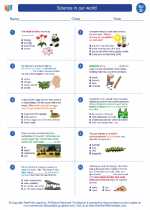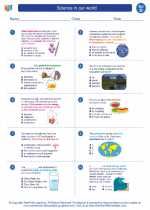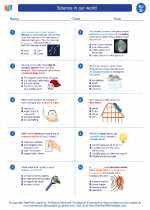Humans
Humans are highly evolved primates belonging to the species Homo sapiens. They are known for their complex societies, tool-making abilities, language, and capacity for abstract thought. Here is a study guide to help you learn more about humans:
- Physical Characteristics: Humans are bipedal mammals with a large brain relative to body size. They have opposable thumbs, which allow for complex manipulation of objects, and a highly developed vocal apparatus that enables complex speech.
- Evolution: The evolutionary history of humans can be traced back to primates that lived more than 6 million years ago. The genus Homo, to which modern humans belong, emerged around 2.8 million years ago.
- Anatomy: The human body consists of several systems, including the skeletal, muscular, nervous, circulatory, respiratory, digestive, and reproductive systems. Each system has specific functions that contribute to the overall health and survival of the individual.
- Cultural and Social Aspects: Humans are unique in their ability to create and transmit culture. They form complex societies with diverse cultural practices, languages, and belief systems. Social structures vary across different human societies and have evolved over time.
- Behavior and Psychology: Humans display a wide range of behaviors and emotions. They have the capacity for empathy, altruism, cooperation, and complex social interactions. The study of human psychology explores the cognitive, emotional, and social processes that shape human behavior.
- Impact on the Environment: Humans have a significant impact on the environment, including the modification of landscapes, depletion of natural resources, and effects on the climate. Understanding human-environment interactions is crucial for sustainable living.
- Health and Disease: The study of human health encompasses physical, mental, and emotional well-being. It also involves understanding the causes and treatments of diseases that affect the human body.
- Future of Humanity: As technology advances and human populations grow, questions about the future of humanity arise. This includes considerations of ethical, social, and environmental implications of human activities.
Understanding humans involves an interdisciplinary approach, integrating knowledge from biology, anthropology, psychology, sociology, and other fields.
Feel free to explore each of these topics in more detail to gain a comprehensive understanding of the fascinating nature of humans!
.◂Science Worksheets and Study Guides Fourth Grade. Science in our world
Study Guide Science in our world - 4th gr.
Science in our world - 4th gr.  Worksheet/Answer key
Worksheet/Answer key Science in our world - 4th gr.
Science in our world - 4th gr.  Worksheet/Answer key
Worksheet/Answer key Science in our world - 4th gr.
Science in our world - 4th gr.  Worksheet/Answer key
Worksheet/Answer key Science in our world - 4th gr.
Science in our world - 4th gr.  Vocabulary/Answer key
Vocabulary/Answer key Science in our world - 4th gr.
Science in our world - 4th gr. 

 Worksheet/Answer key
Worksheet/Answer key
 Worksheet/Answer key
Worksheet/Answer key
 Worksheet/Answer key
Worksheet/Answer key
 Vocabulary/Answer key
Vocabulary/Answer key

The resources above cover the following skills:
History and Nature of Science: A student should understand the history and nature of science. A student who meets the content standard should:
Develop an understanding that historical perspectives of scientific explanations demonstrate that scientific knowledge changes over time, building on prior knowledge.
Develop an understanding that scientific knowledge is ongoing and subject to change as new evidence becomes available through experimental and/or observational confirmation(s).